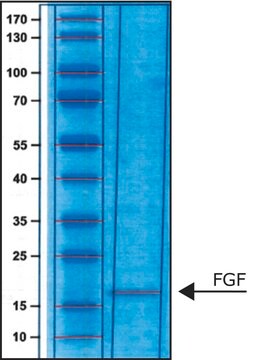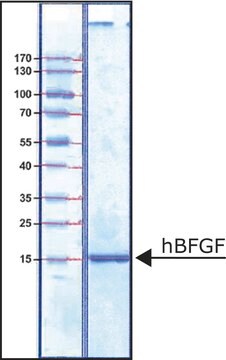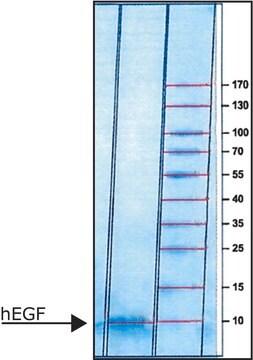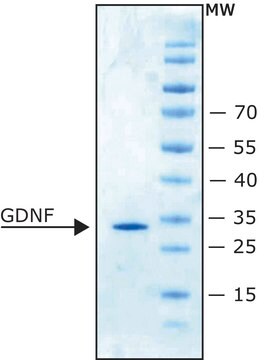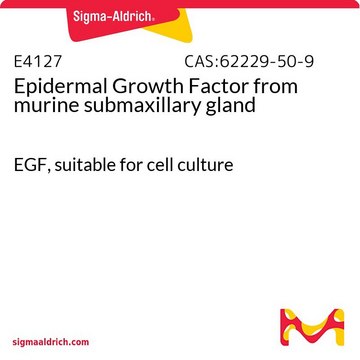F3133
Fibroblast Growth Factor from bovine pituitary
lyophilized, suitable for cell culture
Sinónimos:
FGF
About This Item
Productos recomendados
product name
Fibroblast Growth Factor from bovine pituitary, suitable for cell culture
origen biológico
bovine pituitary glands
Nivel de calidad
formulario
lyophilized powder
potencia
1-100 ng/mL
mol peso
16.4 kDa
envase
pkg of 10 and 5X10 μg
condiciones de almacenamiento
avoid repeated freeze/thaw cycles
técnicas
cell culture | mammalian: suitable
impurezas
endotoxin, tested
color
white to off-white
temp. de almacenamiento
−20°C
¿Está buscando productos similares? Visita Guía de comparación de productos
Descripción general
Aplicación
Acciones bioquímicas o fisiológicas
Calidad
Forma física
Nota de preparación
Nota de análisis
Código de clase de almacenamiento
11 - Combustible Solids
Clase de riesgo para el agua (WGK)
WGK 3
Punto de inflamabilidad (°F)
Not applicable
Punto de inflamabilidad (°C)
Not applicable
Equipo de protección personal
Eyeshields, Gloves, type N95 (US)
Certificados de análisis (COA)
Busque Certificados de análisis (COA) introduciendo el número de lote del producto. Los números de lote se encuentran en la etiqueta del producto después de las palabras «Lot» o «Batch»
¿Ya tiene este producto?
Encuentre la documentación para los productos que ha comprado recientemente en la Biblioteca de documentos.
Los clientes también vieron
Artículos
Fibroblast growth factors in cell culture and various growth factors for your research
Nuestro equipo de científicos tiene experiencia en todas las áreas de investigación: Ciencias de la vida, Ciencia de los materiales, Síntesis química, Cromatografía, Analítica y muchas otras.
Póngase en contacto con el Servicio técnico


